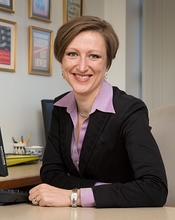BEHAVIORAL SCIENCES WORKSHOP
Abstract: Attitude conflict (Judd, 1978; Minson, Chen, & Tinsley, 2019; Minson & Dorison, 2021)—interpersonal disagreement on deeply-held, identity relevant issues—is common in personal, professional, and policy settings. A large literature on managing such conflicts has identified interpersonal misperceptions as a key mechanism for conflict persistence and escalation. In the present research, we ask: how accurately do conflict counterparts perceive each other’s affective states? Specifically, we test the extent to which individuals report feelings of self-threat in conflict situations as well as the extent to which they infer such feelings in others. Building on research on naïve realism (Ross & Ward, 1995; Pronin, Gilovich, & Ross, 2004) and cognitive dissonance theory (Festinger, 1964; Matz & Wood, 2005), we hypothesized that individuals over-estimate how much self-threat is felt by conflict counterparts, in part because they feel excessively certain in the correctness of their own views while expecting disagreeing others to experience doubt. We present eight pre-registered studies testing this and related hypotheses.
Julia Minson is an Associate Professor of Public Policy at the Harvard Kennedy School of government. She is a decision scientist with research interests in conflict, negotiations and judgment and decision making. Her primary line of research addresses the “psychology of disagreement” – How do people engage with opinions, judgments and decisions that are different from their own? She explores this theme in the context of group decision making to uncover the psychological biases that prevent managers, consumers, and policy-makers from maximizing the benefits of collaboration. She also studies the conditions that make people willing to listen and be receptive to views and opinions they strongly oppose on political and social topics.
This workshop is open to the Yale community only. It will be held in a hybrid format, simultaneously in person and on Zoom. To receive announcements and invitations to attend, please subscribe at https://csap.yale.edu/behavioral-sciences-workshop.
Cosponsored by the Center for the Study of American Politics (CSAP) and the School of Management’s International Center for Finance and the Lynne & Andrew Redleaf Foundation
